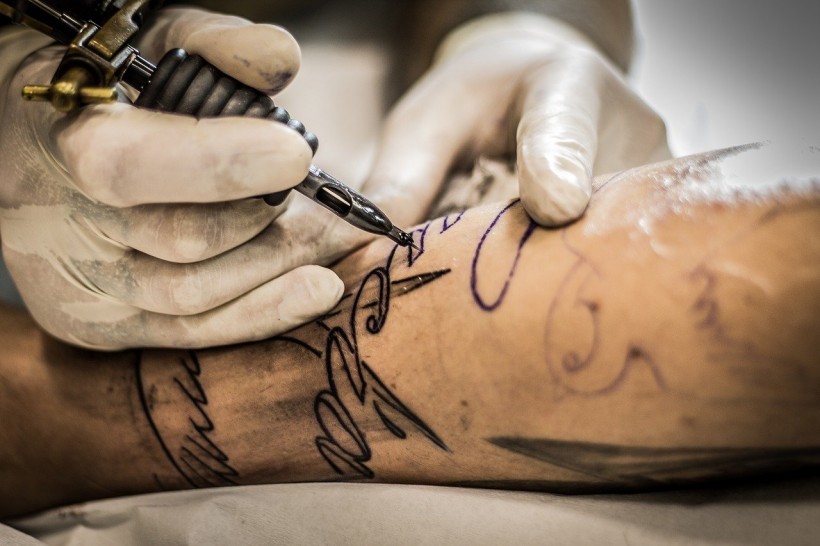A first of a kind study was published in the Journal of Applied Physiology described how tattooed skin does not sweat as much as non-tattooed skin. The study said that it could have implications on the ability of the body to cool, especially on people who have extensive tattooing.
The sweat glands in the skin secrete water-based sweat to regulate body temperature. Damage to the eccrine sweat glands could impair sweating functions which could lead to increase risk of heat-related injury or overheating.
Past studies suggest that the high concentration of sodium in the sweat of a tattooed skin reduces the function of the eccrine sweat ducts. About 3,000 skin punctures per minute are required in tattooing which could result in damaging the sweat glands.

Tattooed Skin Impairs Sweating and Negatively Impacts Sweat Gland Function
Measuring Sweat on Tattooed Skin
Researchers examined volunteers with tattooed skin on their upper and lower arms that measure 5.6 squared centimeters and areas without any tattoo.
The participants were asked to wear a perfusion suit to promote a whole-body sweating response in which the temperature circulated from hot water up to 120 degrees Fahrenheit for 30 minutes or more.
The researchers then proceeded to measure the internal body temperature, sweat rate, and skin temperature of each tattooed skin and non-tattooed skin. The researchers also used laser techniques in measuring blood flow in the skin but doing so proves to be unreliable most likely because of the reflective or absorbent properties of inks used in the tattoos of the participants.
At the end of the study, the researchers found that both the tattooed and non-tattooed skin areas started sweating at almost the same time in response to the rising temperature, suggesting that the nerve signals to the sweat glands function normally.
However, they also observed a reduced sweat production that may imply glandular damage during the repetitive puncturing of the skin when applying the tattoo. Even though small tattoos less likely to interfere with the overall body temperature, still a decrease in sweating in tattooed skin could affect heat dissipation especially when a large area of the body surface area is covered with a tattoo, the researchers said.
The finding of the study suggests that the peripheral skin of the arm with tattooed has seen a reduced in sweat excretion which leads to potential heat loss capacity than the skin without tattoos.
The results indicate that the adverse impact of a tattoo on the eccrine sweat gland function is the collateral effect of applying tattoo and could be considered a long-term side-effect or complication of this cosmetic procedure.
Read Also: The Link Between Tattoos and Your Health: Safety and Precautions
What Happens When Sweat Glands Do Not Function Properly?
Anhidrosis is the condition wherein the body does not sweat normally, either because of skin trauma, diseases, or due to medications. Anhidrosis can also be developed later in life.
When the body does not sweat properly or when sweat glands do not function as they should, the body cannot cool itself which could lead to overheating and sometimes could lead to the fatal outcome which is heatstroke.
It is sometimes referred to as hypohidrosis and can be difficult to diagnose as mild cases often go unrecognized. Treatment of anhidrosis involves addressing its underlying cause if it can be identified.
Read More: Check Out Tattoo Pain Chart Showing Where You'd Probably Get Hurt Most or Least
Check out for more news and information on Anhidrosis in Science Times.














